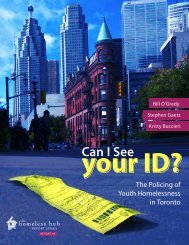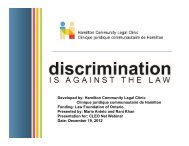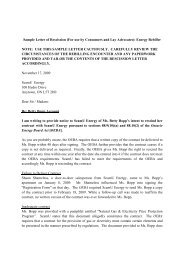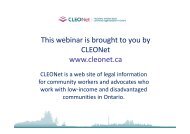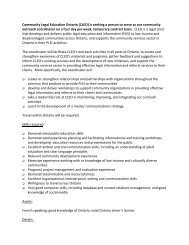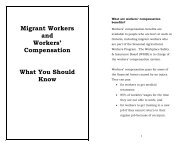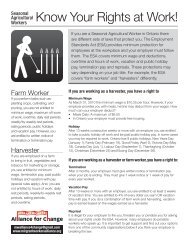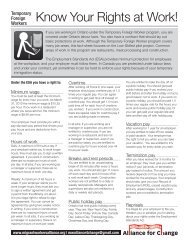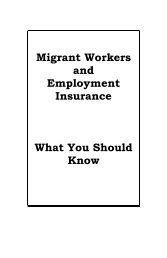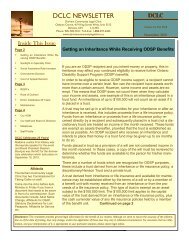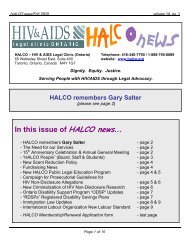Canadian Centre for Elder Law A Practical ... - Your Legal Rights
Canadian Centre for Elder Law A Practical ... - Your Legal Rights
Canadian Centre for Elder Law A Practical ... - Your Legal Rights
You also want an ePaper? Increase the reach of your titles
YUMPU automatically turns print PDFs into web optimized ePapers that Google loves.
!Who decides whether or not to disclose in<strong>for</strong>mation?In most contexts, the worker or volunteer will need to decide whether or not it is appropriate todisclose personal or health in<strong>for</strong>mation. In some provinces and territories, the worker orvolunteer will need to receive permission from the head of a public body or someone in aposition of authority (e.g. the director of a hospital).Disclosing someone’s personal in<strong>for</strong>mation is a significant decision. It is usually a good idea toconsult a co-worker or supervisor about the appropriate steps you should take.In all provinces and territories, each place of employment should have practical guidelines <strong>for</strong>employees to follow.9. Mandatory Reporting of <strong>Elder</strong> AbuseIs there a legal obligation to notify someone?You may be legally required to notify a designated person, organization or government authorityabout concerns of elder abuse, neglect or risk. Whether or not you have a legal duty to notifysomeone will depend upon a number of factors, including:• What is the province or territory that the older adult lives in?• What is your employer or the agency through which you are deliveringservices?• Is the older adult living in the general community or in a care facility?• Is the older adult in need of support or assistance, or is unable to care <strong>for</strong>himself or herself?• Are you a lawyer and does solicitor-client privilege attach to the in<strong>for</strong>mation?• Is the issue risk or has abuse already occurred?• Has a criminal act occurred?For more detailed in<strong>for</strong>mation on your obligations in each jurisdiction, refer to Section D, <strong>Elder</strong>Abuse in your Region. This section contains snapshots of key legislation in each province orterritory as well as a Table <strong>for</strong> quick reference.How should you respond when an older adult is at risk?“At risk” means that an incident of abuse or neglect has not happened but circumstancesindicate that a person is likely to become abused or neglected. In some provinces, you may belegally required to notify the appropriate authorities that an older adult is at risk of abuse orneglect in certain situations. Refer to Section D to determine whether you have an obligation toreport risk in the province or territory in which you practice or volunteer.Can an older adult be allowed to keep living at risk?Mentally capable older adults have the right to make choices. As long as an adult is capable, shemay make risky or unwise choices. You must respect the right of the older adult to choose thepeople with whom to live or associate – including people who may be abusive. However, you canalso offer resources in a respectful manner. A person in an abusive relationship may requireaccess to support and assistance in order to be com<strong>for</strong>table with leaving an abusive relationship.! "#!




